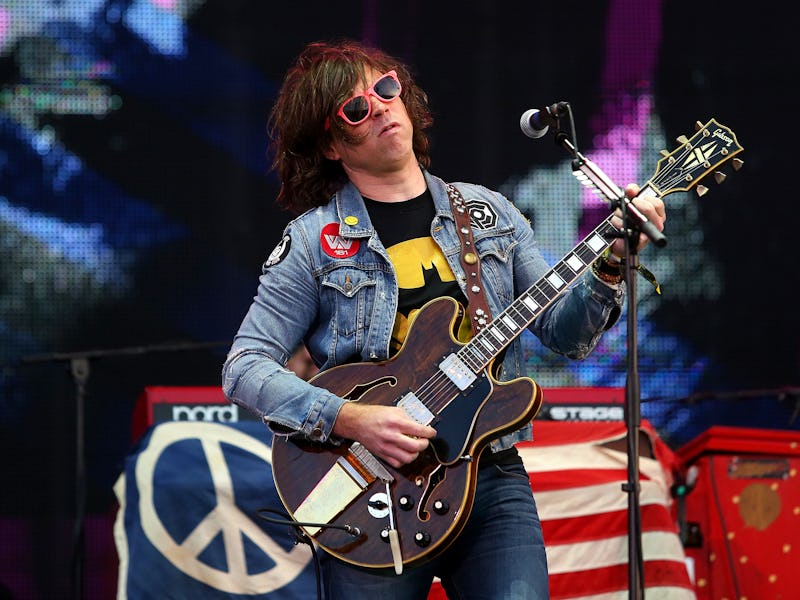
After work yesterday, I walked into a wine store near my office in Williamsburg, Brooklyn. Inside, they were pumping Ryan Adam’s version of “Welcome to New York,” from his album of Taylor Swift’s 1989 covers he released earlier in the week. While hearing it in this setting is kind of a joke inside a joke — here, browse all this wine marketed to hipsters to the soundtrack of Taylor Swift, now with her music’s sequins sanded off and made safe for hipsters — it was hard to shake the image. While Taylor Swift and Ryan Adams have more in common than you would initially think — both are longtime presences in Nashville — the common ground they find with respect to the music of 1989 doesn’t have much to do with how either album sounds. (One is very good, one is very bad). Rather, how Adams reminds me of Swift is in just how calculated his version of 1989, and its promotion, feels.
Before talking about the music of 1989 Redux, it seems like a good idea to explain the stakes of Adams’ cute lil gambit here. It’s low-stakes, low-input, self-indulgent adventure, but with huge upside; as he’s explained in interviews (by far the most interviews he’s been asked to give in some time) he more or less used covering 1989 as an exercise and lost himself a little in the process. (Though other aspects of his intentions can be doubted, his affection for the music on 1989 should not be, turns out). What started as a notion and metastasized on social media became a full-blown thing, and for that, you have to commend Adams for his cleverness, allowing these moments to snowball into something sellable. For those who have followed Adams throughout his career, covering an entire pop album is a relatively boring decision; that it became a phenomenon seems to benefit Adams, who needs the press, and Swift, who probably doesn’t need the money.
How’s the music? It’s a pile of crap. While there’re some nice moments that will probably let some of the singles float up as to approach the success of his “Wonderwall” cover — “Bad Blood” is already his third biggest song on Spotify — it’s more or less a frustratingly-paced, poorly sung coffee shop stunt that makes the listener appreciate Swift’s songwriting ability (it’s no wonder she co-signed the release so heavily).
In the end, neither person involved here ends up looking dumb. Adams has already started spinning this attention into pub for his next album: “I think it will replace ‘Love Is Hell’ for a deep fan as… like, this is the stuff,” he told Zane Lowe on Beats Radio. And a big-time cover album only serves to burnish Taylor Swift’s crown. Still, there are ways to spit shine platinum without getting spittle all over Brooklyn. The new 1989 is an album I wish did not exist and I’m absolutely baffled that people think it’s good.
Ultimately, Adams’ 1989 is the Garfield minus Garfield of albums, and I’ll have to wean myself from coffee to stop from hearing it.